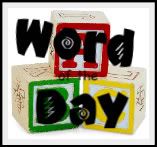It is actually something that Hunter and I came across today while we were reading a book on ancient civilizations. Of course, I thought nothing of it but Hunter immediately covered his eyes - and then repeated to do so for a great many of the pictures in the book.
Why? Because something that I have been teaching him for quite some time is that, if you see somebody naked, hide your eyes.
This kind of started out of a necessity (from us sharing a room and having to get dressed together a great deal of the time) but I immediately began to appreciate the far-reaching ramifications of this little lesson in modesty.
While a great many parents want to protect their kids from the, er, far-spread undressing of our culture, they usually make attempts to do so by simply modifying the environment - screening television and internet use, avoiding such printed media, etc., etc. And while all that is just great, more than that is needed, I believe. Not just because it is virtually inevitable to come across it in public (even if you're Amish) but because it is increasingly inevitable, sadly enough, even in private.
I remember first reading about how Michael Pearl, an author, taught his children what to do should they ever come across pornographic material. And while cultural and moral differences may highly vary in their valuing and definition of modesty, I am pretty sure that it is a universal value that children shouldn't be looking at that kind of stuff.
I recently read that an overwhelming percentage of children had been exposed to pornography before their tenth birthday. And even though that really is not something that I want to be talking to my little child about, small, preventive measures are a necessity if we want to protect them, and I think that the whole don't look and people who are naked, along with other small, value-based conversations, are a solid place to start at this young age.
Touchy subject yes, and even though it is really something I honestly and truly wish I never had to even think about (much less worry about teaching my child important safety measures or writing about it publicly) I believe that it is something that, though uneasy, parents need to be thinking about and preparing and training their children accordingly.
"Keep thy heart with all diligence; for out of it are the issues of life... Let thine eyes look right on, and let thine eyelids look straight before thee... Turn not to the right hand nor to the left: remove thy foot from evil."
Proverbs 4:23-27
















